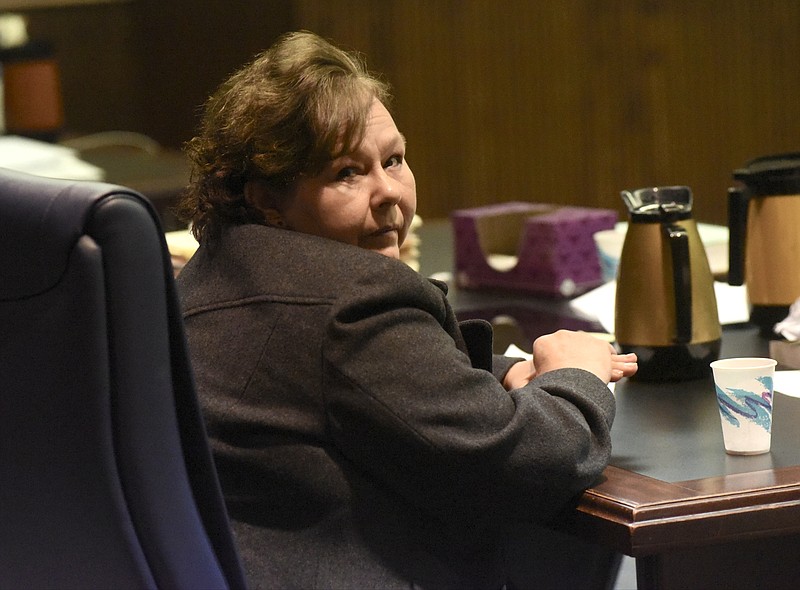The prosecutor on Wednesday slid a picture onto a projector, screening for jurors the image of a 23-month-old boy sprawled on his stomach, naked and tilted, his arms outstretched and limp.
As the boy's mother turned her head away in the courtroom, prosecutor Leslie Longshore repositioned the image and asked Hamilton County Assistant Chief Medical Examiner Steven Cogswell to explain what he saw.
"You can see right there in the middle of his back," Cogswell said, "there is a patch."
Arguments continued Wednesday in the criminally negligent homicide trial of Jaqueline Escareno, 52, who was caring for Demarcus Bryant when he died from a 25-microgram fentanyl patch on his right midback.
Prosecutors say Escareno, who wore prescribed fentanyl patches for a back injury, should have understood that she put Demarcus at substantial risk.
Her attorneys say Escareno had no motive to kill the child, whom she watched on a somewhat regular basis. Attorneys Lloyd Levitt and Fisher Wise contend Escareno's patch transferred onto Demarcus when she lifted him from a bathtub.
John Blake, Escareno's doctor, testified Wednesday the caregiver had had problems with the patches falling off. In the past, they'd resorted to a clear adhesive to keep the patches stuck in place, he said.
Escareno's back was injured when she tried to catch a falling patient while working at a local medical center. She instead collided with a wheelchair, hurting a disc.
Blake said he originally prescribed Escareno hydrocodone, an opioid. But it wasn't enough to control her pain so he switched to a 12-microgram fentanyl patch, the lowest dosage.
Over time, Blake said, he increased the dosage to help manage her pain. He said he revoked the medication after Escareno told him in March how Demarcus overdosed.
"She told us the story," he said Wednesday. "At that point we decided to no longer write her prescriptions because we caution patients to store medication securely. Intentionally or accidentally, it was no longer, in my opinion, safe to continue that medication."
The trial continues today in Criminal Court Judge Don Poole's courtroom at 9 a.m.
Contact staff writer Zack Peterson at zpeterson@timesfreepress.com or 423-757-6347 with story ideas or tips. Follow @zackpeterson918.

